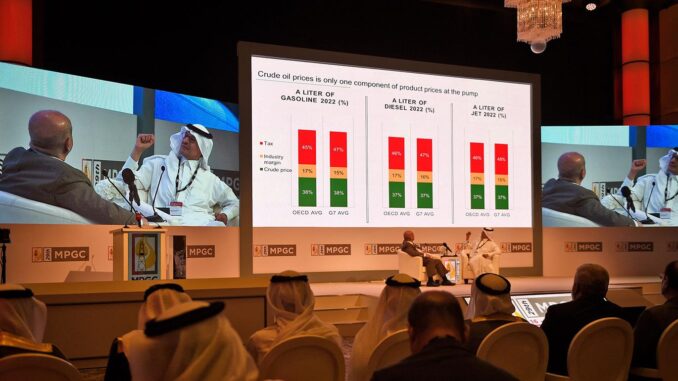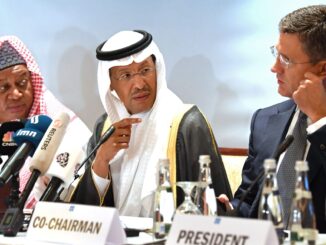
Saudi energy policymakers have been pressured repeatedly—both from within the OPEC+ countries and from outside—to develop policies to moderate global economic turbulence and to placate politically-motivated demands while being pressed domestically to satisfy and respond to local economic ambitions. This is all while having to keep up with industry development needs, constraints, and transitions.
Against this backdrop, since 2015, and under the new “Saudi first” policy, Saudi policymakers have shifted from a decades-long policy of playing the role of market balancer and price taker to a more activist role in energy price making, intervening in and influencing global energy markets. This is resulting in the de-linking of Saudi energy policy from its role as a stabilizer of global energy supplies, and thus, from the US-led global order.
Post-2015 energy policy choices have been driven by political and market conditions including geopolitical and regional competition, oil output and supply and demand balancing, pricing and market share competition, productive and spare capacity, and local economic considerations. These policy choices are a manifestation of long-term Saudi goals, which include the maintenance of high oil prices to finance economic diversification under Vision 2030 while prolonging the dominance of oil and gas in the global energy mix.
The hallmarks of the post-2015 energy policies include the upgrading of OPEC into the de facto OPEC+ in 2016, which paved the way for a shift from petrodollar system, and Saudi Arabia’s active engagement in non-oil energy markets and the broader energy transition. Additionally, in 2019, Saudi Arabia started exploring oil trading in other currencies besides the US Dollar, and in 2022, the kingdom started seriously weighing options for trading oil in Yuan with China. In tandem, Saudi Arabia has been pushing to increase local and global investment in renewable energy, while pouring investment into research and development globally. The kingdom has pledged about 100 billion USD for the task through 2030.
However, while these post-2015 energy policy choices are enabling Saudi empowerment on the global political stage, the resulting political dynamics could backfire at both the domestic and global level. One of the major ways these choices have generated negative politics is in the unbundling of energy policy from security policy. Saudi energy has been anchored in the global security structure since the founding of the sector (and the country) in the 1930s. The politics generated by the new Saudi energy policies have already created raptures in the longstanding political agreements that underpinned the security of Saudi Arabia. These developments have reinforced the American deprioritization of the Gulf and Saudi security, rather than contributing to a reversal of US disengagement. Perhaps unsurprisingly, this has coincided with the American perception that Saudi Arabia is increasingly using oil as a political tool.
Furthermore, as the shale revolution has prompted the American deprioritization of Saudi oil, Saudi policymakers have failed to restore the kingdom’s pre-2015 oil-for-security status, leading to a situation in which the Houthi movement was able to mount attacks on key Saudi oil installations in 2021 and 2022. The opening-up of Saudi energy for Chinese investments with Saudi Aramco only complicates the political and security picture, even as these investments are syndicated by US private equity. A recent example is the $15.5 billion privatization of gas pipelines, which—in principle—is intended to safeguard Saudi infrastructure against future attacks.
As the government in Saudi Arabia moves to review the policies and policymaking process for the energy sector, it should be cognizant that policies carry political implications. Within an evolving international power reordering, these political implications could jeopardize Saudi Arabia’s global political standing and security.



